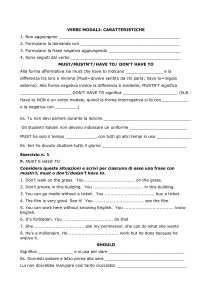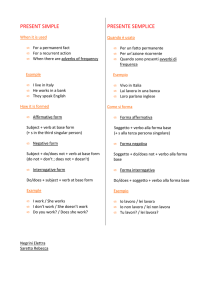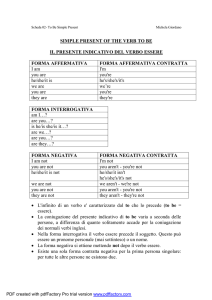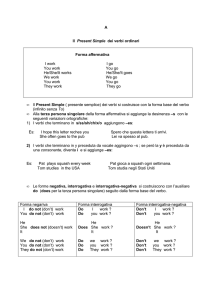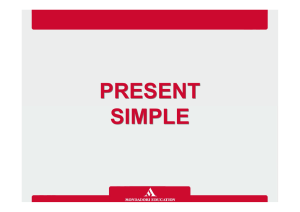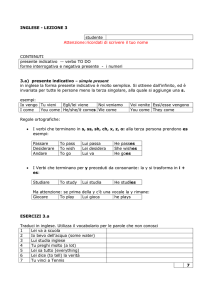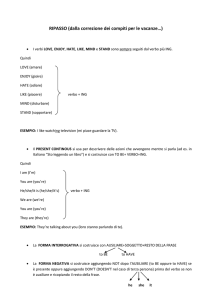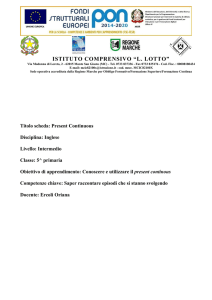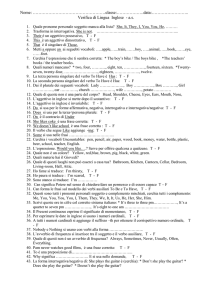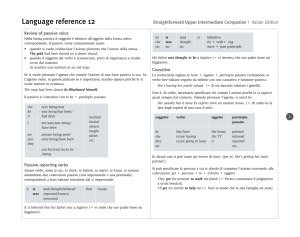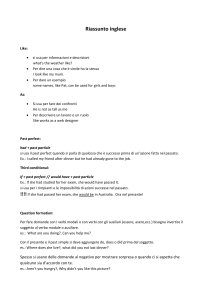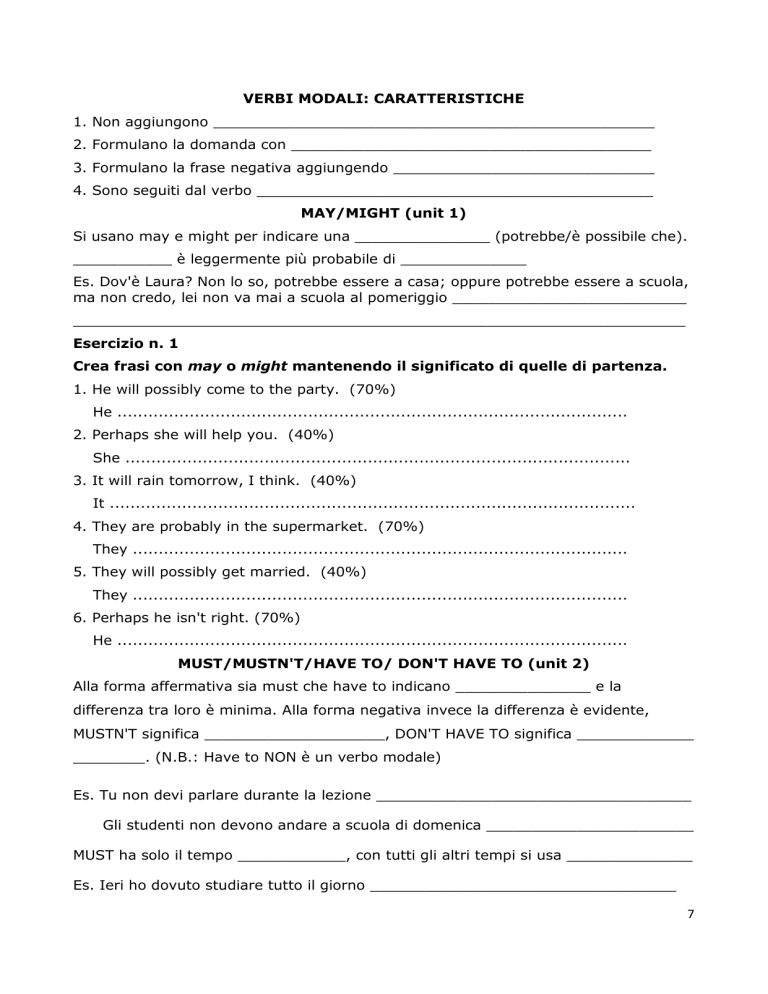
VERBI MODALI: CARATTERISTICHE
1. Non aggiungono _________________________________________________
2. Formulano la domanda con ________________________________________
3. Formulano la frase negativa aggiungendo _____________________________
4. Sono seguiti dal verbo ____________________________________________
MAY/MIGHT (unit 1)
Si usano may e might per indicare una _______________ (potrebbe/è possibile che).
___________ è leggermente più probabile di ______________
Es. Dov'è Laura? Non lo so, potrebbe essere a casa; oppure potrebbe essere a scuola,
ma non credo, lei non va mai a scuola al pomeriggio __________________________
____________________________________________________________________
Esercizio n. 1
Crea frasi con may o might mantenendo il significato di quelle di partenza.
1. He will possibly come to the party. (70%)
He ...................................................................................................
2. Perhaps she will help you. (40%)
She ..................................................................................................
3. It will rain tomorrow, I think. (40%)
It ......................................................................................................
4. They are probably in the supermarket. (70%)
They ................................................................................................
5. They will possibly get married. (40%)
They ................................................................................................
6. Perhaps he isn't right. (70%)
He ...................................................................................................
MUST/MUSTN'T/HAVE TO/ DON'T HAVE TO (unit 2)
Alla forma affermativa sia must che have to indicano _______________ e la
differenza tra loro è minima. Alla forma negativa invece la differenza è evidente,
MUSTN'T significa ____________________, DON'T HAVE TO significa _____________
________. (N.B.: Have to NON è un verbo modale)
Es. Tu non devi parlare durante la lezione ___________________________________
Gli studenti non devono andare a scuola di domenica _______________________
MUST ha solo il tempo ____________, con tutti gli altri tempi si usa ______________
Es. Ieri ho dovuto studiare tutto il giorno __________________________________
7
Esercizio n. 2
F. MUST E HAVE TO
Considera queste situazioni e scrivi per ciascuna di esse una frase con
mustn’t, must o don’t/doesn’t have to.
1. Don’t walk on the grass. You ................................... on the grass.
2. Don’t smoke in this building. You ................................... in this building.
3. You can go inside without a ticket. You ................................... buy a ticket.
4. The film is very good. See it! You ................................... the film.
5. You can work here without knowing English. You ................................... know
English.
6. It's forbidden. You ................................... do that
7. She ................................... ask my permission, she can do what she wants
8. He's a millionaire. He ................................... work but he does because he
enjoys it.
VERBI MODALI PER ESPRIMERE DEDUZIONI (unit 4)
Must esprime __________________
Es. Devi essere stanco ______________________
Can't esprime ___________________
Es. Ho visto Sara un'ora fa, non può essere malata __________________________
May/Might esprimono _________________________
Es. Loro sono stranieri, potrebbero essere inglesi _____________________________
Esercizio n. 3
A. DEDUZIONI E VERBI MODALI
Completa con must, may o can’t + verbo. Usa questi verbi:
be (x 5)
have
study
understand
1. Ben is very honest. He .............................. the thief!
2. ‘Is she French?’ ‘I’m not sure. She .............................. Spanish.’
3. Juan has never studied English. He ……………… what we are saying!
4. Fred is at the dentist’s. He .............................. toothache.
5. Someone is in the house. It .............................. my mother – she’s on holiday in the USA.
6. ‘What does she study?’ ‘I’m not sure. She .............................. history.’
7. He has a BMW and a Mercedes. He .............................. rich!
8. Eddie is ugly, but Nina is beautiful. She .............................. in love with him! It’s impossible!
8

